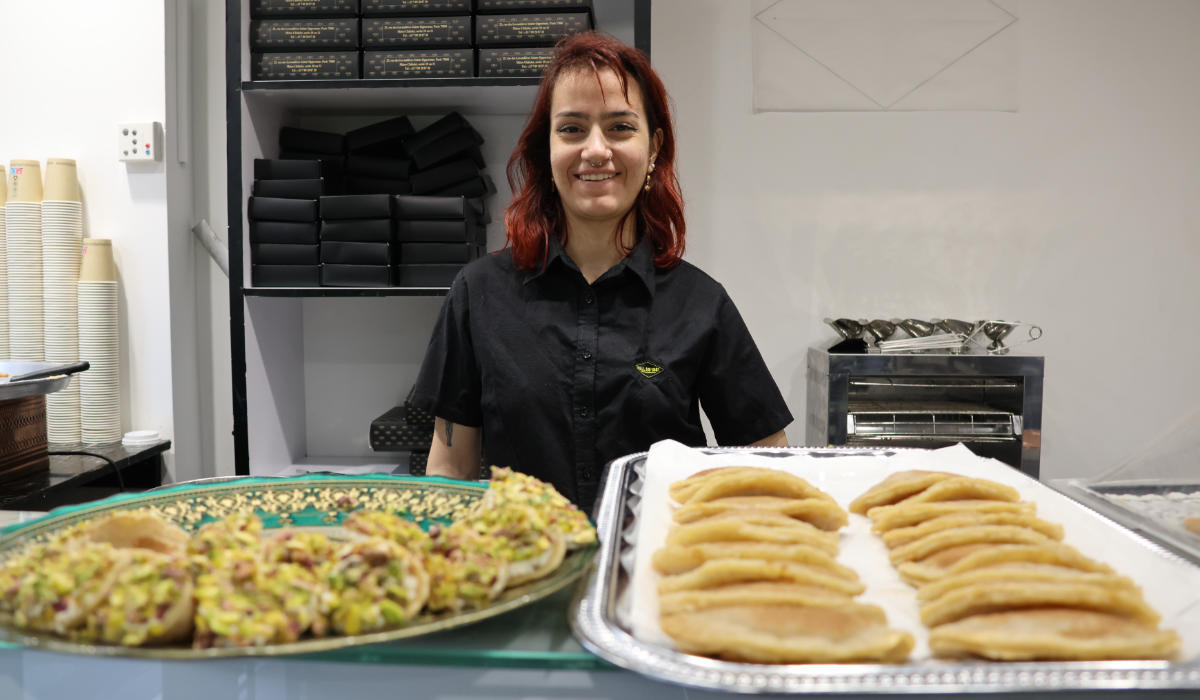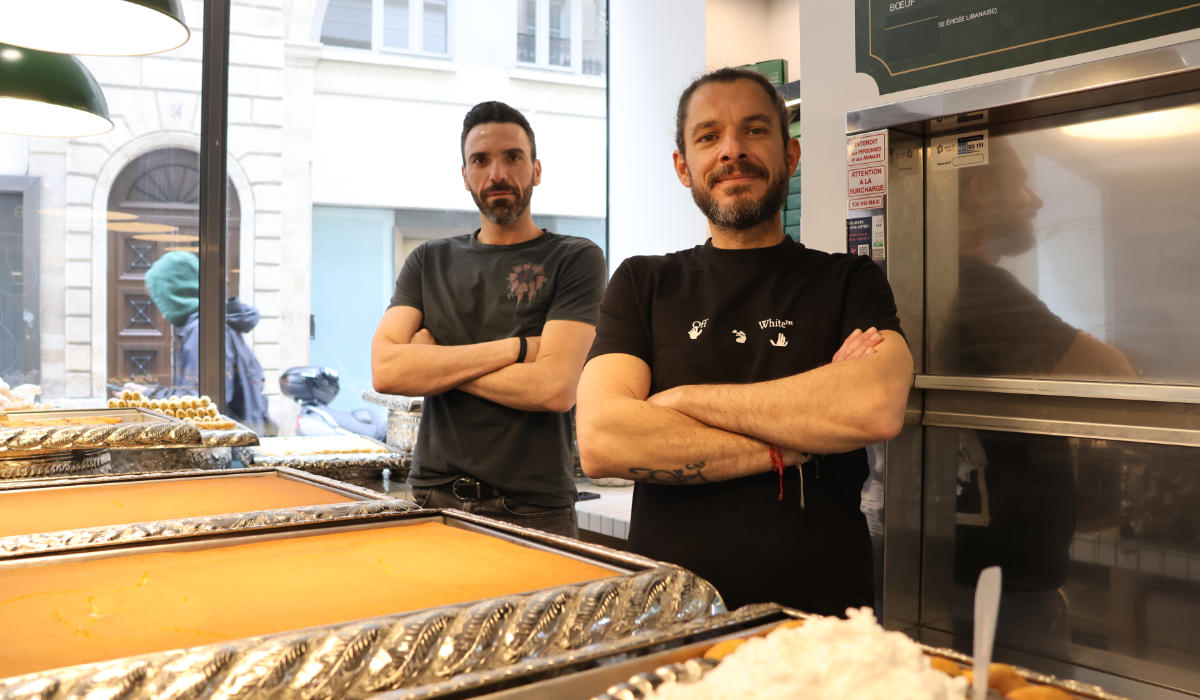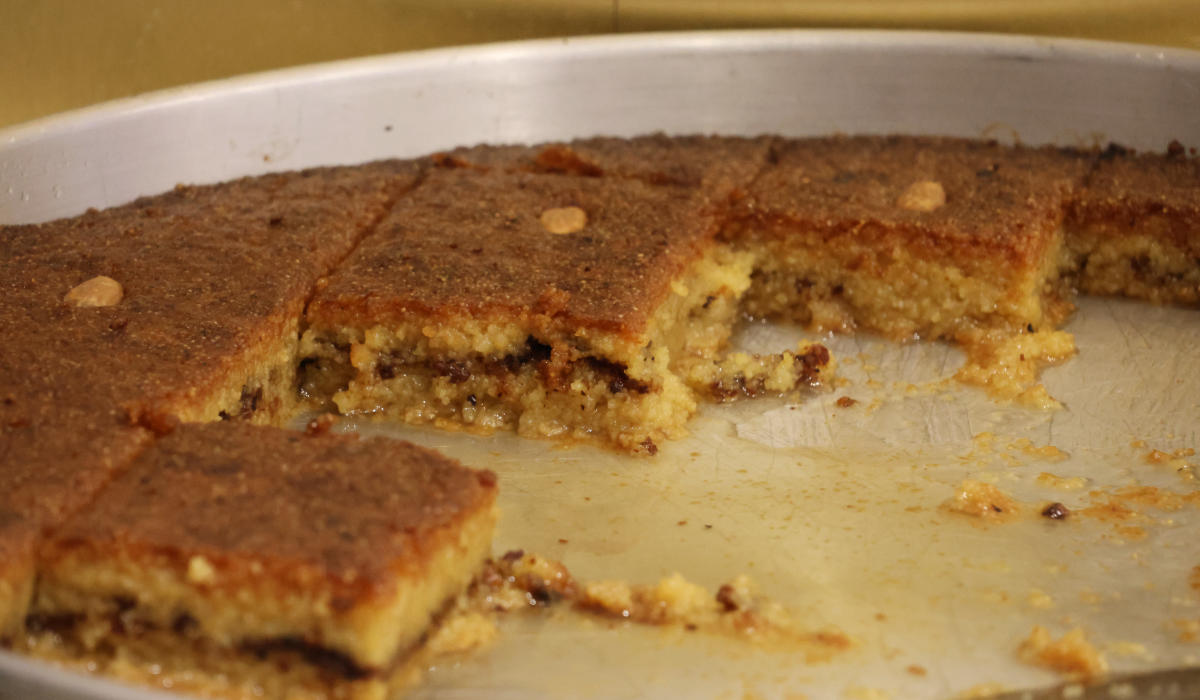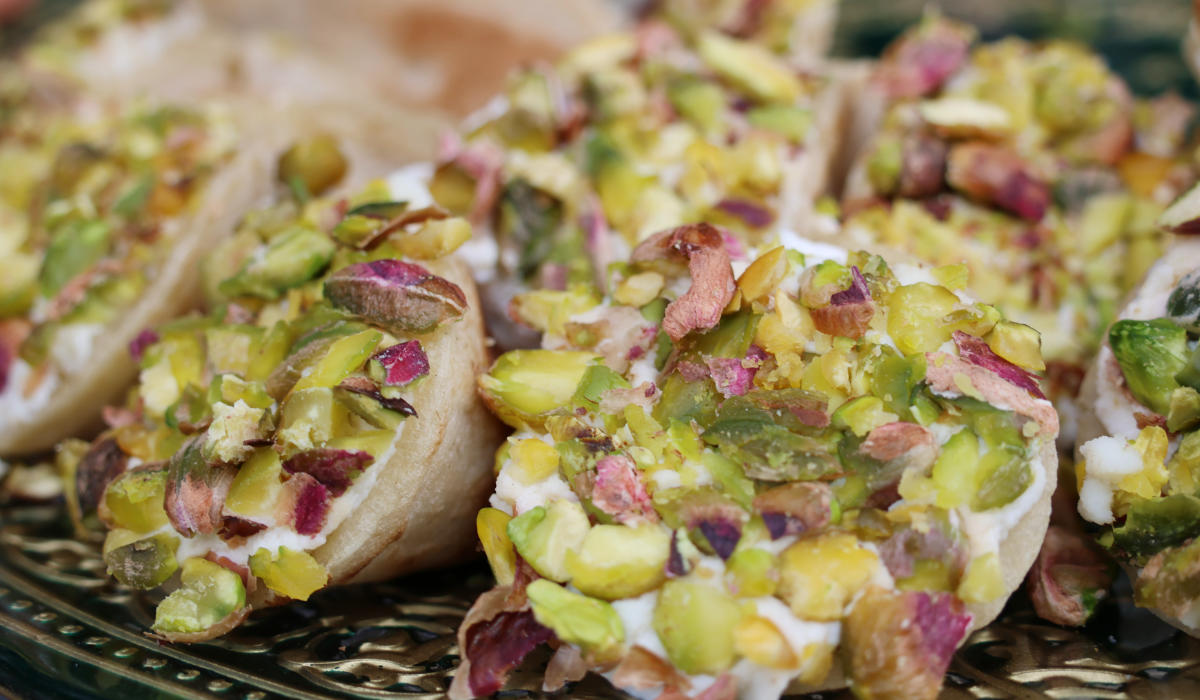Mediterranean desserts tickle taste buds in Paris
PARIS: Located a short distance from each other, two such establishments -- Hallab 1881 and Maison Hallab -- have been offering delicious Lebanese sweets and other Mediterranean delicacies to the inhabitants of the French capital. Both belong to a Lebanese family famous for its food, and are particularly renowned for oriental sweets. During Ramadan, Hallab 1881's pastry chef, Yasser Jamraoui, originally from Tripoli, makes two traditional sweets that are popular during Ramadan: qatayefs (small pancakes filled with milk cream and pistachios) and kallaj (thin, deep-fried dough filled with cheese or cream, soaked in sugar syrup and garnished with crushed pistachios).
"People tell us that the pastry shop takes them to Lebanon," Yara Saber, the shop assistant, told Arab News. She estimates that 60 percent of the customers are Lebanese and 40 percent are tourists or French.
 "People tell us that pastries take them to Lebanon," Yara Saber tells Arab News in French. Photo Anne Ilcinkas. (Supplied)
"People tell us that pastries take them to Lebanon," Yara Saber tells Arab News in French. Photo Anne Ilcinkas. (Supplied)
"During the day, everything is quiet, but from 5 p.m. onwards, there's a rush to buy desserts before the iftar," Saber revealed.
"We decided to bring Lebanese pastry to France, to Paris," said manager Hassan Obeid, who met his partner, Magid Hallab, at a Parisian hospital where they were both working on a medical research project. Located a short distance from each other, two Lebanese establishments -- Hallab 1881 and Maison Hallab -- have been offering delicious Lebanese sweets and other Mediterranean delicacies to the inhabitants of the French capital. "During Ramadan, the daily turnover is multiplied by three," said Obeid, who plans to open a second Hallab 1881 shop in Saint-Michel district. "I spent 15 Ramadans in Paris and I never had the chance to eat Ramadan desserts like in Lebanon.
It reminds me of my childhood back home and it brings me a bit of the Ramadan atmosphere here in Paris."
 Karim el Mir and Mazen Jaber, two partners of Maison Hallab. Photo Anne Ilcinkas. (Supplied)
Karim el Mir and Mazen Jaber, two partners of Maison Hallab. Photo Anne Ilcinkas. (Supplied)
At Maison Hallab in the nearby Opera district, the trays are covered with oriental pastries, a pleasure for the eyes as well as the palate. Opened in October 2022, the shop is manager Hassan Hallab's dream, who, like the rest of his family "has pastry in his veins."
Karim El-Mir, who, after 15 years working in TV production in Qatar, has come to Paris help his cousin Hallab, said: "Ramadan is about generosity and family solidarity." He added: "When we fast, we dream of pastries, anything made with fresh milk cream."
 Kalb el louz from the Laouz pastry shop. Photo Anne Ilcinkas. (Supplied)
Kalb el louz from the Laouz pastry shop. Photo Anne Ilcinkas. (Supplied)
Basboussa, or kalb el louz, and zlabia are the queens of Ramadan sweets in Algeria and Tunisia.
They can be found all year round in the restaurant of the Paris Mosque, which also serves as a hammam and tea room. "We work during the day with French and tourist customers," Zaidi Lalioui, the owner of the place for the past 30 years, explains to Arab News, "but at night we have Muslim customers. They come after prayer, for iftar, to drink tea and eat cakes, until 2 a.m.
"Ramadan is the month of conviviality; it is the time when the rich and the poor meet. There is a special atmosphere, even here in Paris," explains Lalioui.
 Hallab 1881's katayefs. (Photo Anne Ilcinkas)
Hallab 1881's katayefs. (Photo Anne Ilcinkas)
A few hundred meters away, in Rue Mouffetard, it is the same story. Serina offers zlabia (Tunisian-style) in the Algerian pastry shop where she has been working for three months. "The kalb el louz, a mixture of semolina and roasted almonds flavored with orange blossom, sells very well," she said before sharing her memories of Ramadan in Algeria in her grandmother's small village.
"It's a magical month.
It's quiet all day, but after the iftar, it's another world, everyone would meet in the village square, talking and eating kalb el louz."